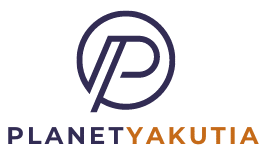Unlock your speaking skills: master arabic with takallam
Unlock the path to Arabic fluency with Takallam, a dynamic platform designed to elevate your speaking skills. Tailored for learners at all levels, Takallam provides interactive lessons and real-life conversations to enhance your linguistic confidence. Discover practical techniques, resources, and inspiring success stories that prove fluency is within your reach. Embrace the opportunity to communicate effectively in Arabic and broaden your cultural horizons.
Overview of Fluent Arabic Speaking Skills Development
Achieving Arabic fluency requires dedication, especially when focusing on speaking skills. The process entails understanding grammar, expanding vocabulary, and refining pronunciation. Common challenges include mastering diverse dialects and accents, and maintaining correct grammar usage. To navigate these obstacles, practical workshops are essential. On this page you'll find comprehensive resources for improving skills: https://www.al-kunuz.com/en/takallam-speak-arabic-fluently.
In parallel : How to Develop Advanced Emergency Response Protocols Using AI for UK Coastal Flooding?
Cognitive benefits of speaking Arabic are significant. Learning new languages, like Arabic, enhances memory, concentration, and even problem-solving abilities. Additionally, it opens up cultural understanding, offering insights into Arabic traditions and societal norms. As learners immerse themselves in the language, they develop better listening skills and increased emotional intelligence.
Maintaining motivation is crucial in language learning. Regular practice and engaging with native speakers can reinforce skills and confidence. Using tools such as language apps or participating in conversation clubs can also help sustain enthusiasm. Ultimately, achieving fluency in Arabic provides not just linguistic proficiency but enriches personal and professional dimensions by broadening cultural horizons and communication capabilities.
Also to see : Unlock unique wonders with custom mystery boxes today
Resources and Techniques for Mastering Conversational Arabic
Utilizing Technology for Speaking Practice
Leveraging modern technology is crucial for practice speaking Arabic effectively. Language learning apps provide Arabic language learning tips and interactive features where learners can practice common Arabic expressions and receive instant feedback. These apps often include audio clips from native speakers, crucial for learning how to pronounce Arabic words correctly. Voice recognition technology further aids in identifying pronunciation flaws, enabling learners to improve swiftly.
Engaging with Native Speakers
Building relationships with native speakers is indispensable for those looking to speak Arabic fluently. Arabic language exchange programs can create opportunities for conversational practice, while platforms like social media and dedicated language forums connect learners with Arabic speakers globally. These interactions shed light on cultural context in Arabic language, enriching understanding and making learning Arabic a more immersive experience.
Techniques for Daily Language Practice
Developing a routine for daily Arabic language practice aids substantially in mastering the language. Employing methods such as listening to Arabic podcasts or engaging with Arabic media, can enhance comprehension and vocabulary incrementally. Immersive Arabic language courses often emphasize the role of daily exposure and practical exercises in retaining language proficiency. Practicing Arabic conversation exercises regularly helps solidify both Arabic vocabulary building strategies and fluency over time.
Structured Learning Opportunities for Arabic Fluency
Overview of Effective Language Programs and Workshops
Pursuing Arabic language exchange programs offers learners a unique opportunity to practice and enhance their speaking abilities. These immersive Arabic language courses often facilitate real-world interactions, making them particularly beneficial for those eager to speak Arabic fluently. Combining structured sessions with engaging activities, such programs emphasize understanding Arabic culture through language, which is essential for overall language comprehension. Additionally, language immersion programs in Arabic-speaking countries provide an authentic experience that enriches both linguistic skills and cultural insights.
Benefits of Participating in Language Meets and Clubs
Participation in Arabic speaking clubs and meetups can be instrumental in practicing conversational skills. These settings foster a supportive environment where learners can engage in Arabic conversation practice exercises, enabling them to improve their fluency and confidence. Engaging with peers not only aids Arabic vocabulary building strategies but also exposes learners to various Arabic dialects and accents. These clubs often provide informal contexts to practice speaking, which helps learners grasp common Arabic expressions and slang.
Importance of Cultural Context in Learning Arabic
Cultural context is crucial to mastering the Arabic language. Understanding Arabic culture through language helps learners appreciate the nuances embedded in conversations. As learners delve into Arabic dialects and accents, they gain insights into how cultural elements shape communication styles. Familiarity with cultural etiquette, idioms, and everyday expressions enhances both verbal and non-verbal communication skills, positioning learners to become genuinely fluent in Arabic.
